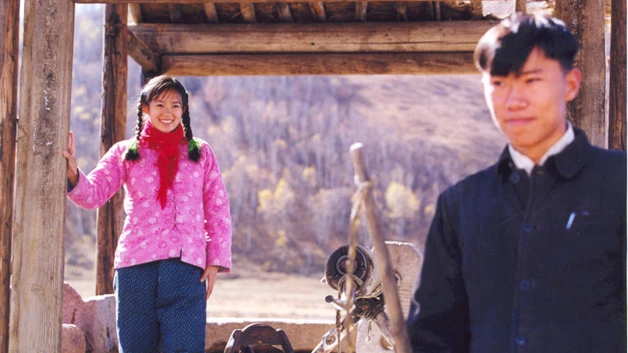The Orator Film Difficulty Ranking: 4
When you think of Samoa, you probably think of pacific island paradise. The Orator not only showcases the island’s beautiful scenery but also Samoan culture. It’s your chance to try and follow the ‘Samoan Way’. Check it out on Amazon here (free for Prime members).
Why Watch The Orator?
- Get to know Samoa, from it’s beautiful landscape to the Samoan language and the ‘Samoan way’
- Meet a courageous little person
- And a crazy smoking, paint spraying rugby coach
- To see some great button up shirts
The Breakdown
The Orator starts with rain and the views and sounds of the natural landscape. It’s beautiful, lush green, and full of life. Then human voices start singing and the camera cuts to a picture of two grave stones in the middle of the forest.
They’re the graves of Saili’s parents. He visits them almost every day and tries to clear the graves of yam plants local farmers have planted around the site. But because of his size (he’s a dwarf/little person) he gets bullied around by the village. And the farmers planting yams around his parents graves threaten to cut of his head if he keeps vandalizing their crops.
Who’s Saili? It’s not entirely clear. All we know is that he’s a taro farmer and that he has a job as the night-time security guard of a local shop. He lives with his wife and her daughter although their relationship seems pretty cordial and friendly rather than romantic. His wife is an outcast just like him, after she was exiled from her home village for reasons we can only assume (probably for having her daughter out of wedlock?).
Why is there so little exposition?
Director Tamasese doesn’t waste time with exposition in The Orator. Instead he immerses us straight into the movie, straight into the Samoan landscape, language, and culture. As a result, we have to figure out what is going on, as well as who the characters are and how they’re related to each other.
His aim is to make you feel like an outsider, just like the two main characters. They have lived most of their lives outside of the ‘Samoan Way’ and have to rediscover it whilst we are trying to figure it out. As a result, we identify more with their journey and struggle.
Conclusion and What to Watch Next
The Orator is a window into another world. With beautiful cinematography and a slow contemplative rhythm, you’ll slowly be introduced to the ‘Samoan Way’.
There are quite a few great films of indigenous people and customs from across Australasia. I strongly recommend checking out:
- Tanna – a Shakespearian love story adapted to the Vanuatan rainforest
- Rabbit Proof Fence – to cheer on three children from the ‘stolen generation’ trying to walk home after they are separated from their parents
- Another Country – to meet an indigenous community in Australia
Or for another contemplative drama with a strong flavour of local life, check out Timbuktu, where you’ll see how the three tribes/ethnic groups of Timbuktu get along.






You must be logged in to post a comment.